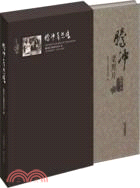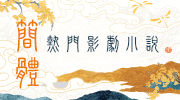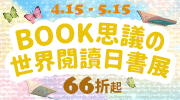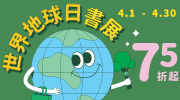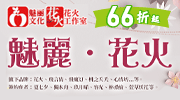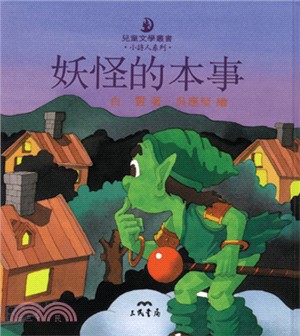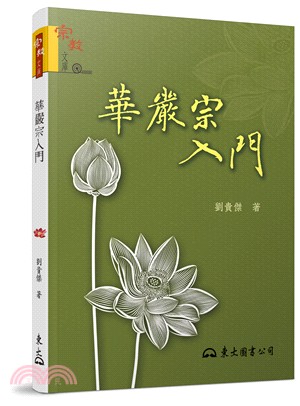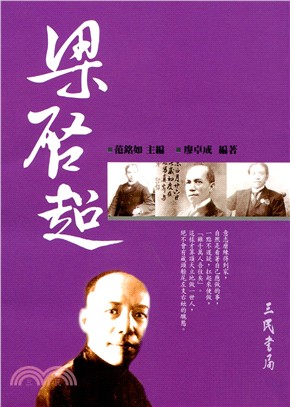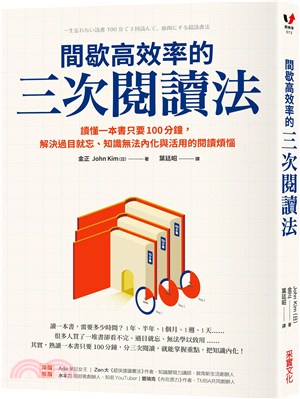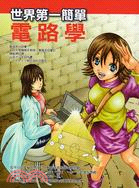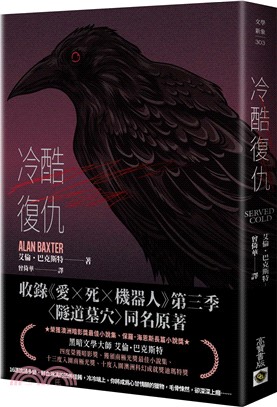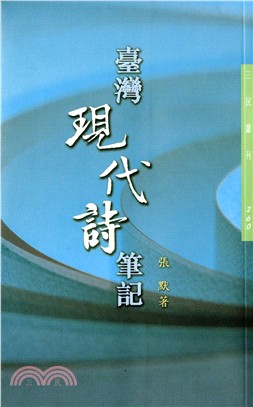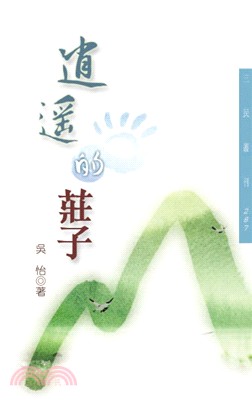目次
書摘/試閱
◎ 序二
“窮走夷方富走廠”的見證
——一條歷史之路串起的珍珠
周創
晚清到民國的歷史時段,伴隨著社會變革的巨大動蕩,中國大地上再次出現人口大遷徙的浪潮。他們或為養家糊口,或為發財致富,或為躲避戰亂與災禍,不惜翻山越嶺,不畏漂洋過海,心一橫,既抹著眼淚,又滿懷著憧憬,離開生養自己的土地,拋別老父老母、嬌妻幼子,踏上茫茫漫漫旅程,投奔異國他鄉。
在中國國內,四川人、江浙人的足跡,更是無處不見,而“闖關東”、“走西口”則是中國北方的男女們演奏出的最宏博、最凄美的命運交響曲。
中國人顛沛流離、奮起創業的區域,決不僅僅限于九州方圓,更有福建、廣東人的赴歐美、下南洋的匆匆身影。
在這一股股背井離鄉、四處奔流的人潮中,騰沖人“走夷方”是近現代云南人企圖走出盆地,跨越山谷,自強不息的生命哲學中的亮點。而在一般人眼中,人們習慣評點云南人的閉塞、保守,并稱其傳統頑固。
在騰沖民間,“窮走夷方富走廠”是一句流行百年的俗語。“窮走夷方”就是指生活窮到沒有著落的時候,便到緬甸為主要目的地的東南亞國家謀生、經商。而“富走廠”,則指若要發家致富,就到緬甸的玉石廠和其他礦山冒險一搏礦產生意。
這寥寥幾個字,是騰沖人的創業、生存的七字真言,又是一幅幅百年人生萬象的高度濃縮概括。其中,不知演繹出來了多少九曲八折、回腸蕩氣的悲歡離合、情愛生活;也不知演繹出了多少大貧大富、風生水起的商貿傳奇。
就是這七個字的“窮走夷方富走廠”的生存之道,改變了無數騰沖人的生存狀況,染就了騰沖熠熠生輝的僑鄉色彩,鑄造了騰沖卓越的商幫文化,提升了騰沖人的心智才華,賦予了騰沖人勇敢和智慧。
我們今天在品味“窮走夷方富走廠”這句話的時候,或許一條五彩變幻而又神奇悠長的大路出現在眼前,禁不住催促著你去探究這條滇緬大道的發現和開拓的歷史陳跡,了解騰沖人以前仆后繼的氣度留在路上的那些足以令人炫目動容的人生故事。
那么,就請仔細翻閱本書吧。書中的章節,是由一幅幅“老照片”組合起來的。這些“老照片”,最古老的不過一兩百年,更為大量的是20世紀40年代以后的一些照片。它們的內容涉及甚廣,但與騰沖人“窮走夷方富走廠”相關聯的照片,是其中最特別、最有價值的照片。
對于這批照片,有如下幾點或許是應加以注意解讀的。
第一,人生離不開走路。“人在旅途”,既是關于人生的象征意義的說法,又是人生的實況。騰沖位于南方絲綢之路要沖。眾所周知,早在公元前2世紀,我們的祖先就在這條路上走來走去。這條大路出緬甸、下印度后通向世界其它地方。這始終是和一個開拓、創造、尋求發展的夢想相關聯的,也是和中國人民從來就希望和世界各國人民友好交往的意愿相關聯的。騰沖人“窮走夷方富走廠”是中國人穿越南方絲綢之路的古老命題的一大時代創意,也是一種千古不變的沿襲。了解這點,便于我們在一個更大的背景下,以更開闊的視野審視這個現象。
第二,騰沖和緬甸接壤的地理環境決定了它在中國西南的地緣作用。在古代,在抗日戰爭時期,騰沖是具有戰略地位的邊陲重鎮,而在當今改革開放的大環境中,它是名符其實的中國面向西南開放的橋頭堡。本書中的照片,從各個角度透露出的信息以及展示的舊顏舊貌風土人情更顯現出文化價值、史料價值。
在改革開放的今天,云南建設面向西南開放橋頭堡的戰略中,這本關于騰沖的書,可視之為一朵“戰地黃花”(見毛主席《采桑子?重陽》)。
第三,騰沖人在“走夷方”、“走廠”的艱辛過程中,出現了大量富甲一方的幸運者。這些人中的大多數經歷了“流浪者——創業者——巨富者”的命運三部曲,或者說由平常人而成為商賈俊杰之后,由于人生境遇的改變,海外的非凡歷練使眼界心境更為開闊,不少人因臍血浸潤的至情,產生對家國同胞無比濃郁的眷戀之心,他們又成為了感恩行善的社會賢達。他們或幫助窮人,或修橋補路,或捐資辦學,或起房蓋屋美化家園,或資助中國民主革命,或支援滇西抗戰……不一而足。總之,他們引領了騰沖的主流精神。這就是行百善,惠民生,利鄉梓,舉云南,興國家。
以上這些,我們在這批騰沖老照片中,都不難尋覓出蘊含在那些貌似平淡中的深邃,嗅出那些藏在似乎無味之花中的芳馨,析出那些似乎無色的文化碎片中的姹紫嫣紅。
我始終認為,近現代騰沖,那一股由民間發生發展的變革、開放、走出去的潮水,或明或暗,從來沒有斷流過,“窮走夷方富走廠”的說法便是見證。如果我們把本書的那一幅幅優秀照片視為文化中的珍珠,它們可由這條千百年都在走的歷史之路串綴起來……
●
作者為云南人民出版社編輯
◎ Preface II
Witnessing “If too poor, go to the foreign lands to seek your
fortune, and if you want to make big money, go to the
factories”
——A string of pearls by the road of
history
From the late Qing dynasty until the Republic of China, another
large migration occurred in China, along with associated great
changes in societal formation. In order to support the family, or
to make money, or to avoid wars and disasters, the people did not
hesitate to cross over mountains and valleys and were not afraid of
travelling overseas. They made up their minds and left their
hometowns with tears and with hope. They left their aged parents,
their beautiful wives, and their young children, and stepped out on
long journeys, heading towards alien lands.
In China, we see Sichuan, Jiangsu, and Zhejiang people everywhere.
And “venturing into Northeast China” and “expanding west out of
Shanxi” were the greatest and the most beautiful life symphonies
played by the men and women in the north of China.
The areas that Chinese people moved to and worked hard in to run
businesses were not limited to China. There were the hastening
figures of Fujian and Cantonese people who went to Europe and
Southeast Asian countries.
Among these batches of migrants leaving their hometowns and moving
about, the Tengchong people’s “Going to Foreign Lands” highlights
the fact that modern and present-day Yunnan people did their best
to get out of the basin, crossing valleys with a philosophy of
unyielding spirit. Usually, people comment that the Yunnan people
are closed-minded, conservative, traditional, and stubborn, but the
migrations show it is not so.
In Tengchong’s folklore, “If too poor, go to the foreign lands to
seek your fortune, and if you want to make big money, go to the
factories” is a common saying that has been popular for about one
hundred years. “If too poor, go to the foreign lands to seek your
fortunes” means if you are too poor to make your living, then you
chose Burma in Southeast Asia as your main destination to make a
living and run a business. “If you want to make big money, go to
the factories” means if you want to build up your family fortunes,
then you go to the jade factories and the other mines in Burma to
venture into the mining business.
These few words reveal the reality of the Tengchong people’s
running businesses and surviving, and they form a condensed view of
a whole century of life, which was full of complex, soul-stirring
joys and sorrows, separations and reunions, stories of love, and
many legends of thriving trade, both of the poorest and the
richest.
The means of survival captured in these seven Chinese characters,
“If too poor, go to the foreign lands to seek your fortune, and if
you want to make big money, go to the factories” has changed the
life conditions of thousands of Tengchong people, colored Tengchong
brightly as an overseas Chinese county, made Tengchong a prominent
trade culture county, promoted the Tengchong people’s wisdom and
talents, and endowed Tengchong people with bravery and wits.
Today when we are appreciating the sentence, “If too poor, go to
the foreign lands to seek your fortune, and if you want to make big
money, go to the factories,” there may appear before our eyes a
long, colorful, changing, and mysterious road, which will push us
into researching and discovering the Yunnan-Burma road, exploring
the historic sites, and knowing the brilliant and moving life
stories that Tengchong people have left on this road, the
courageous spirit of each one stepping into the breach as another
falls.
So please read this book carefully. The chapters of this book
consist of “old photos”. The oldest photos are about one to two
hundred years old. Most of the photos were taken after the 1940s.
These photos cover many subjects, but the photos relating to “If
too poor, go to the foreign lands to seek your fortune, and if you
want to make big money, go to the factories” are the most special
and the most valuable.
We can interpret these photos as follows.
First, life is connected with walking. “People on a trip”
symbolizes our life and is actually our true life. It is well known
that Tengchong is located at an important point of the South Silk
Road. Our ancestors had been walking on this road back and forth
for many years. This branch of the Silk Road leads to Burma,
crosses India, and then goes all over the world. It is always
related to the dreams of exploring, creating, and seeking
development, and also is related to the Chinese people’s
willingness to make friends with people from all over the world.
The Tengchong people’s saying, “If too poor, go to the foreign
lands to seek your fortune, and if you want to make big money, go
to the factories,” was a creation of the time of this old event of
Chinese people journeying along the South Silk Road, and it has a
long tradition of inheritance since then. Knowing this point makes
us want to read about this phenomenon with a broad view and in
greater detail.
Second, Tengchong is located at the border to Burma, which decides
its geographic function in Southwest China. In ancient times, and
in World War II against the Japanese, Tengchong was the most
important and strategic frontier county. Today, it deserves to be
called the bridge and gateway to the southwest. The photos of this
book have cultural and historical source value from all points of
view, because of the information they reveal and the old scenes and
old customs they present.
In today’s times of reforming and opening up, and in Yunnan
province’s bridge building and gateway strategy to the southwest,
this book on Tengchong can be regarded as “The yellow flower in the
battle field” (from Chairman Mao’s words).
Third, during those hard times of “going to foreign lands” and
“going to the factories,” there were some lucky people with great
wealth. Most of these people had experienced three stages of fate
as “wanderer-entrepreneur-wealthy.” In other words, after they went
from being normal people to become trade elites, their life
conditions changed. Overseas experience broadened their horizons
and their minds. Many of them had a sentimental attachment to their
family, country, and the country people. They became social elites,
feeling thankful to do good for the country people. They helped the
poor, repaired roads, donated to set up schools, built houses to
beautify their hometowns, sponsored the Democratic Revolution in
China, or supported West Yunnan War again the Japanese. We won’t
mention everything here. In a word, they embodied the main spirits
of Tengchong, which are “do good, benefit the people, benefit the
hometown, develop Yunnan, and revitalize the country”.
In all these old Tengchong photos, it is not difficult to find the
profound meaning which is contained in the seemingly plain, smell
the sweet fragrance in the plain flowers, and make out the
multitude of colors from the colorless cultural remains.
I have thought all along that the tide of reformation, openness,
and going out that has developed in the folk of modern and present
Tengchong really has continued from the past and has never stopped,
whether it has been clearly said or not. “If too poor, go to the
foreign lands to seek your fortune, and if you want to make big
money, go to the factories” is the best witness. If we regard the
excellent photos from this book as pearls of culture, they can seen
as strung along this historic road that has been walked for a
hundred and a thousand years.
Humanity Readings Department of
Yunnan People’s Publishing House
主題書展
更多主題書展
更多書展本週66折
您曾經瀏覽過的商品
購物須知
大陸出版品因裝訂品質及貨運條件與台灣出版品落差甚大,除封面破損、內頁脫落等較嚴重的狀態,其餘商品將正常出貨。
特別提醒:部分書籍附贈之內容(如音頻mp3或影片dvd等)已無實體光碟提供,需以QR CODE 連結至當地網站註冊“並通過驗證程序”,方可下載使用。
無現貨庫存之簡體書,將向海外調貨:
海外有庫存之書籍,等候約45個工作天;
海外無庫存之書籍,平均作業時間約60個工作天,然不保證確定可調到貨,尚請見諒。
為了保護您的權益,「三民網路書店」提供會員七日商品鑑賞期(收到商品為起始日)。
若要辦理退貨,請在商品鑑賞期內寄回,且商品必須是全新狀態與完整包裝(商品、附件、發票、隨貨贈品等)否則恕不接受退貨。




